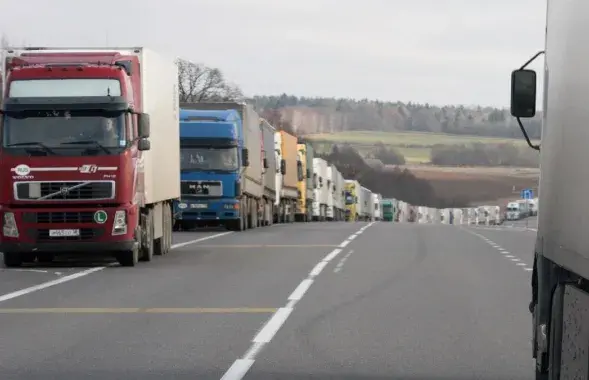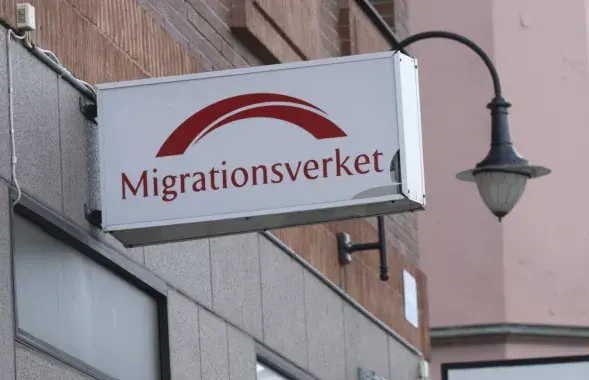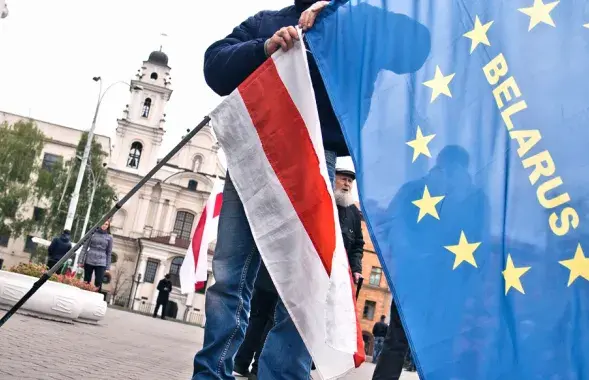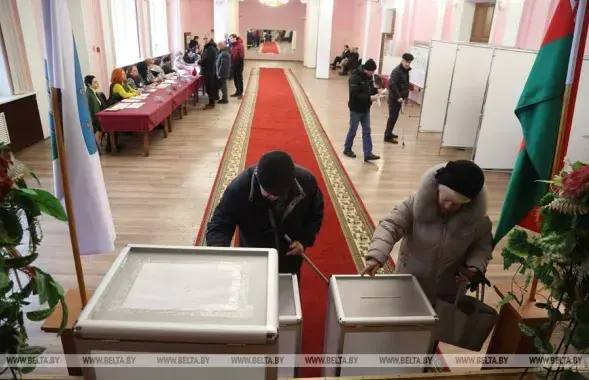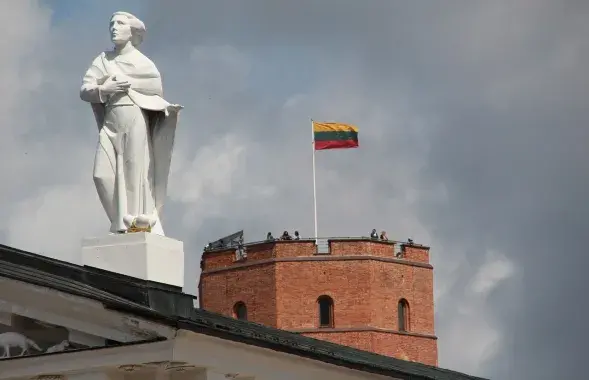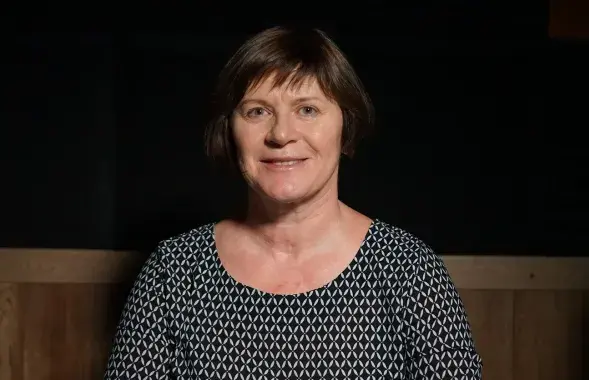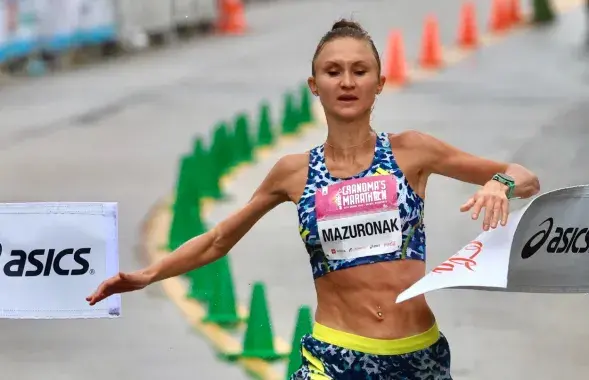International conference “Future of Belarus” organized in Vilnius (stream)
Participant of the conference Andrew Wilson says that the West is much more united as regards its attitude to Belarus than it used to be before December 2010.
18.10 Economists have made speeches at the conference. Leanid Zaika has presented his forecast of the country’s economic future. In the expert’s opinion, the main Belarusian enterprises (so-called “family silver”) will be sold and everyone who can will leave the state.
Ex-Minister of Labour Alyaksandr Sasnou has noted in his speech that only a third of our population support the market economy. According to the expert’s forecast, the number will not even reach half of the population in the near future.
***
Wieck about government in exile: I do not think that it is senseless
The German politician used to think different.
Hans-George Wieck , chairperson of the Association of Human Rights in Belarus (Berlin), made a speech at the conference “Future of Belarus” in Vilnius and touched upon the issue of the Belarusian government in exile.
Hans-George Wieck: “The council we are speaking about will not be an organ used to create a government. Secondly, we can discuss the creation of an alternative government. However, the alternative government should gain international recognition to have some sense. It is hardly possible in the near future. The European Commission and some others are still hoping to see changes in the country”.
Mass media used to write that Hans-George Wieck thought that the creation of an alternative government was unlikely. Wieck says that he was misinterpreted and that he does not think that the idea is senseless.
Let us remind you that political emigrant, ex-colonel of the special forces, Uladzimir Baradach has been promoting the creation of such a government recently.
Wieck: "With market economy Belarusians could produce a million cars a year and influence neighbours”
The German Doctor of Science has shared a few suggestions with the Belarusian community.
Hans-George Wieck from the Association of Human Rights in Belarus shared a few suggestions during the conference “Future of Belarus”.
In his opinion, it is necessary to create academies of the civil community for it – both in Belarus and abroad. The academies would help build up intellectual comprehension of the situation the country is in and the way it should follow for the next 20 years.
Hans-George Wieck also drew attention to the necessity of market changes in the economy.
Hans-George Wieck: “Belarus could have turned its industry into a market mechanism and find partners abroad in the 90s. If it had happened, you would be producing a million cars now, live comfortably, make a living and influence your neighbours – the EU and Russia”.
Wieck noted that the EU perceived Belarus’ civil community as a serious partner. The Belarusian “third sector” used to suffer from Europe’s non-recognition before.
Expert: West is more united now rather than before December, 2010
Only the necessity to impose sanctions on Belarus is disputable.
Representative of the European Council on Foreign Relations Andrew Wilson made a speech at the conference “Future of Belarus” in Vilnius and explained how the West’s position as regarded Belarus had changed after the election of December, 2010.
Andrew Wilson: “The West is much more united now rather than before December 2010 when the states could not reach an agreement concerning their policy. It happened after the last presidential election and persecution of the opposition. It led to certain unity although the issue of sanctions is still disputable”.
Commenting on Belarus’ international policy, Andrew Wilson noted that the official Minsk could only use blackmail in its game.
Let us remind you that the conference “Future of Belarus” is taking place in Vilnius now, on May 25 and 26. It is dated for the 20th anniversary of independent research in our country and the foundation of the IISEPS.
***
15.46 Hans-Georg Wieck says that is it necessary to help people get rid of the Soviet thinking in politics, economy and life. The politician has suggested creating so-called academies of the civil community for it – both in Belarus and abroad. He has suggested attracting people involved in various spheres to conferences, discussions and symposiums. Wieck says that the main task of such meetings will be freeing people from this Soviet thinking and helping them understand democratic values, etc.
15.23 The issue of the civil community and its role in democratization are being discussed at the conference. Volha Karach, chairperson of “Nash Dom” (“Our Home”) is making her speech first. According to her, special services and the police have focused on opposition leaders and are not paying attention to ordinary opposition members which gives an opportunity for working with people. Karach has suggested that activists should be encouraged to assert their rights actively and to explain the limits of policemen’s power to them. She thinks that the opposition should look for a new model of behaviour.
***
USA and Lithuania to keep supporting civil community in Belarus
It is been said during the international conference “Future of Belarus” in Vilnius.
The International conference “Future of Belarus” has started in Vilnius today, on May 25. It is dated for the 20th anniversary of independent research in our country and the foundation of the Independent Institute of Socio-Economic and Political Studies.
Opening the conference, deputy Foreign Minister of Lithuania Vytautas Leškevičius expressed anxiety in connection with the issues of democracy and human rights “in some neighbouring states”.
Vytautas Leškevičius: “Being a member of the democratic community, Lithuania is glad about hosting such analytical centres and organizations as IISEPS. The fact that they are concentrated in Vilnius demonstrates our close cooperation and the level of communication with all the objects functioning in Belarus”.
Vytautas Leškevičius also recalled the 20th anniversary of EHU situated in Vilnius and supported by the Lithuanian state in his speech. The official expressed a hope that the next conference would take place in democratic Belarus.
At the same time, US Charge d`affairs Michael Scanlan expressed a wish that Belarus would develop in the democratic direction and thanked Aleh Manayeu and his team for 20 years of work.
Michael Scanlan: “Having spent 3 years in Belarus, I can see different views and opinions there. However, people usually share them only with friends and relatives in the kitchen. The ability to unite these groups is unreachable for people. However, it is possible to build up connections and bridges between these separate groups with the help of prof. Manayeu’s work”.
Senior Deputy Administrator of the USAID Europe and Eurasia Bureau Roberta Mahoney noted the importance of independent research. In her opinion, the research will help influence decisions taken in the state.
Roberta Mahoney: “It is essential that Belarus should follow the way of changes and reforms Belarus wants. The opportunities presented by this conference help develop the dialogue. It helps create new ways of comprehension, new policies and new recommendations”.
***
Belarusian scientists, civil activists and international experts – about 100 people – are taking part in the event.
The conference in Vilnius is dated for the 20th anniversary of of Independent Research of Belarus and the foundation of the IISEPS. It is organized with kind support of USAID through Pact, the Eastern Europe Studies Centre (Lithuania) and the Ministry of Foreign Affairs of Lithuania.
According to the organizers, participants of “Future of Belarus” will make an attempt “to look at the roots of the country’s symptoms”, not only repeating the same problems.
Lithuanian Minister Audronius Ažubalis, U.S. chargé d'affaires pro tempore in Belarus Michael Scanlan, Professor Aleh Manayeu and others are expected to make speeches today.
***
The conference will continue on Saturday, May 26.

Roberta Mahoney (in the centre), Senior Deputy Administrator of the USAID Europe and Eurasia Bureau, listening to the speech of welcome pronounced by a representative of the Lithuanian Foreign Office.
Agenda
Friday, May 25
12.15 – 13.00 Opening of the Conference
Remarks by:
Audronius Azubalis, Minister of Foreign Affairs of Lithuania
Professor Aleh Manayeu, founder of IISEPS
Roberta Mahoney, Senior Deputy Assistant Administrator for Europe and Eurasia,
USAID (confirmed)
Michael D. Scanlan, US Charge d`affairs, Minsk
13.00 – 14.30 Panel I: Political Development: What Public Opinion Says?
Moderator: Michael Murphy, NDI
Panelists:
Syarhei Nikailyuk, IISEPS team, Minsk
Jake Jones, IRI
Professor Anatol Lysiuk, Professor, Brest State University
Andrew Wilson, Senior Policy Fellow, ECFR, UK
15.00 – 16.30 Panel II: Civil Society: Its Role in Democratization
Moderator: Professor Aleh Manayeu, IISEPS Founder
Panelists:
Оlga Karach, Head, Nash Dom, Vitebsk
Dr. Hans-Georg Wieck, Germany, Association of Human Rights in Belarus
Valery Bulhakau, Chief Editor of “Arche” Journal, Minsk
Yury Chavusau, NGO Assembly, Minsk
17.00 – 18.30 Panel III: Economy: Crisis and Ways Out
Moderator: Professor Stanislau Bahdankevich, former Head of the National Bank,
former Chairman of IISEPS Advisory Board
Panelists:
Dr. Leanid Zaika, Analytical Centre “Strategy”, Minsk
Dr. Alyaksandr Sasnou, IISEPS, Minsk
Pyotr Martsau, editor-in-chief of BDG-online, Minsk
Alyaksandr Yarashuk, Chairman, Belarusian Congress of Free Trade Unions
Saturday, May 26
9.30 – 11.00 Panel IV: Belarusian Identity: National, European or Post-Soviet?
Moderator: Dr. Yury Drakahrust, Radio Liberty/Radio Free Europe, Prague
Panelists:
Dr. Yuliya Charnyauskaya, Belarus State University of Culture, Minsk
Professor Grigori Ioffe, Radford University, United States
Andrei Adamovich, Budzma!, Minsk
Dr. Yaraslau Kryvoi, Belarus Digest, London
11.30 – 13.00 Panel V: Putting Belarus into the European Context
Moderator: Vytis Jurkonis, Eastern Europe Studies Centre, Vilnius
Panelists:
Dr. Yury Drakahrust, Radio Liberty/Radio Free Europe, Prague
Anna Maria Dyner, Polish Institute of International Affairs, Warsaw
Dzianis Melyantsou, Belarus Institute for Strategic Studies, Minsk
Dr. Arkady Moshes, Finish Institute for International Affairs, Helsinki
Professor Algirdas Degutis, IISEPS
14.15 – 16.00 Panel VI. State and Future of Independent Research: Development Track after 20 years
Moderator: Dr. Elena Korosteleva, University of Kent
Panelists:
Professor Aleh Manayeu, IISEPS, Minsk
Dr. Zhanna Hrynyuk, SATIO, Minsk
Dr. Ihar Pelipas, BEROC, Minsk
Valeryya Kastsyuhava, Agency for Political Expertise, Minsk
Andrei Vardamatski, NOVAK, Minsk
Photo by — Uladzimir Matskevich

